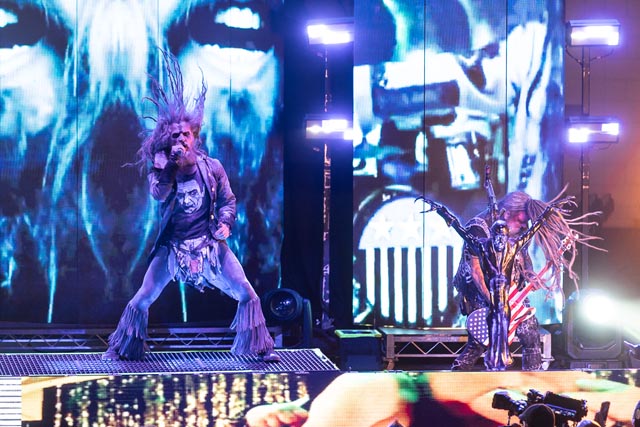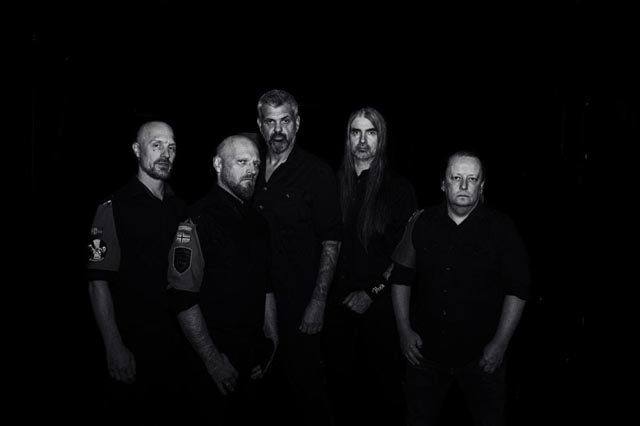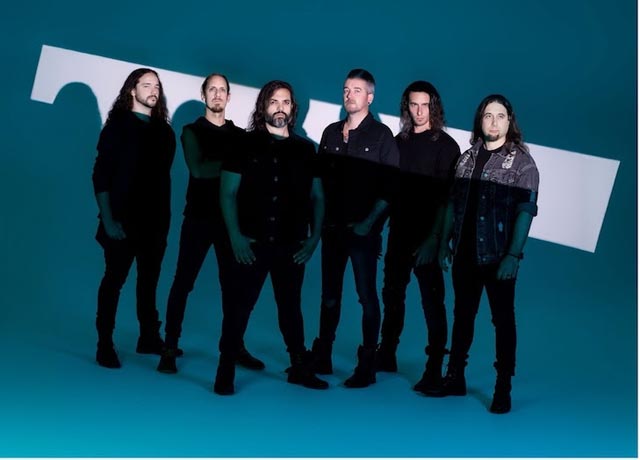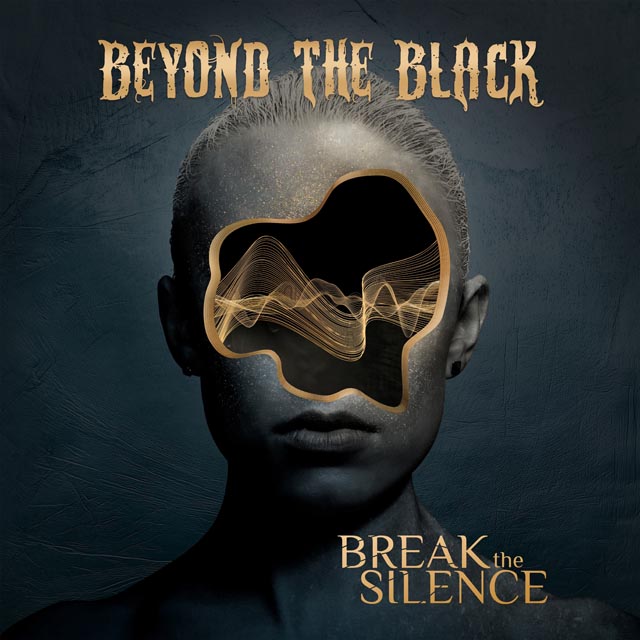 Soilwork had lots to celebrate last month. That’s because the group’s double album The Living Infinite not only cracked the top 60 in its first week, but also marked the Swedish metal group’s best debut ever. Yet singer Björn “Speed” Strid isn’t letting himself rest to enjoy the victory, as Soilwork continue on with an extensive North American tour. Strid did, though, take a minute to speak with Metal Insider about his thoughts on the album’s success, life after guitarist Peter Wichers, Trivium frontman Matt Heafy’s high praise for the band, and how The Living Infinite is without a doubt Soilwork’s most collaborative album to date.
Soilwork had lots to celebrate last month. That’s because the group’s double album The Living Infinite not only cracked the top 60 in its first week, but also marked the Swedish metal group’s best debut ever. Yet singer Björn “Speed” Strid isn’t letting himself rest to enjoy the victory, as Soilwork continue on with an extensive North American tour. Strid did, though, take a minute to speak with Metal Insider about his thoughts on the album’s success, life after guitarist Peter Wichers, Trivium frontman Matt Heafy’s high praise for the band, and how The Living Infinite is without a doubt Soilwork’s most collaborative album to date.
First off, congrats on The Living Infinite cracking the top 60 in its first week!
Thank you!
What was your first thought when you heard this?
Well it was incredible. I was definitely shocked. There was really good buzz going on, so I expected it to at least hit the top 200 because [2010’s] The Panic Broadcast, hit number 88. I hoped for even better than that, but then again you never know. So it was definitely a surprise and a happy one at that.
I think what’s even more impressive is that it reached the top 60 as double album.
Yeah, that’s true. I mean, it did have a very good campaign [behind it]. At Best Buy it was only $7.99, which is incredible for a double album. It’s probably one of the best deals I’ve seen, so I think it helped. But your right, it is a double album and not everyone buys it at Best Buy, so that’s pretty impressive.
I’ve read an interview where drummer Dirk Verbeuren explained that you were actually the one to suggest making a double album because you thought it’d be a way to strengthen the band’s motivation. What was it about a double album that made you think it would help the band at that point?
Well, it was important for each member to step up and contribute with some of the song writing because with all the turbulence with Peter [Wichers, former guitarist] coming back and leaving again. There was always talk about “if Peter leaves, Soilwork’s screwed.” It came to a point where it became pretty annoying. Not saying he’s not an amazing songwriter because he is, and he had a huge impact on Soilwork from the start, but I think it was time for us to prove to ourselves and our listeners that there are other amazing song writers in the band. We needed to do that and it was important for each member to feel that they were really a part of the band and the sound. I think that was a really good thing to be able to have that freedom and raise the boundaries since you have a double album. We needed something more diverse. I think that was really important for us, to not feel limited in anyway.
I know that right before you started writing, guitarist David Andersson joined the band. Do you feel he also contributed a lot to The Living Infinite?
Yeah, he did. I think he wrote like 7 songs on the album, so that’s really impressive. Like you mentioned, he was there right from the very start when I cracked the idea of making a double album. That was back in 2011 when we were doing the Euro Summer festivals. He was there from the star,so that definitely helped as well. Plus, we’ve known him since 2006 and he’s been touring with the band before. So he’s really familiar with the sound. I don’t think he needed to adapt in anyway or force himself to write Soilwork songs. It’s something that’s really close to his heart, so to speak.
It seems he’s been a part of the band for a while now, but now it’s just official.
Yeah, definitely. It felt like a natural step and he’s definitely earned his place. He’s always been there for us whenever we needed somebody to step in because of Peter not being able to tour. So he definitely earned that place, for sure. Now it feels like he’s been in the band for a very long time. It’s pretty strange. On a personal, level it’s great. He’s a great musician, and all around he’s a kick ass guy.
What would you say was the most difficult part of recording a double album?
To tell you the truth, I thought there was going to be more issues, but it went pretty smooth. We wrote all the songs in half a year, maybe 8 months. To go in and record 27 songs total, obviously that’s going to be pretty hard, but it went smoother than I expected it to. We did have 3 studios in one, like 3 studio rooms available, so we could record things simultaneously. If we couldn’t do that, it probably could’ve ended up taking up to a year. I think the hardest part was to find the right track order. Usually, I take care of that, but this time around Dirk took care of it and I think he did a really great job.
Was it weird to have someone else in the band take control over the track listing?
No, I’ve never had any control issues like that. He said “Can I give it a go?” and I said “Yeah, sure!” Coming out of the studio, I was really tired. Standing in a vocal booth for like 6-7 hours every day for a month and then coming out, I was like ‘Yeah, please take care of it, I can’t do it!’ And by that time, he was home and rested, so it was a good thing as well to have fresh ears.
Just hearing you talking about wanting to get the band so involved, would you go as far to say this was the most collaborative album in Soilwork’s career?
I would say so. I mean, I’ve written some riffs here and there from the start really and Sven [Karlsson, keyboardist] has always been involved and has had at least one or two songs on each album. But I don’t think we’ve ever released an album that was really a band effort like this. Usually it’s only me who writes the lyrics, but this time around David wrote some lyrics and Dirk arranged most if all the songs. I think it’s great. It’s definitely something that stands out there. It’s usually just two members. I’ve even heard about bands who have contracts that say only this member can write songs and that’s it. We’re really democratic in that sense and I really think that strengthens the band as well.
On this tour, I know you’ve been giving vocal coaching sessions. What was the inspiration behind doing this?
Well, I’ve done it before a couple years back and it’s really cool to be able to inspire people and meet them face to face. They bring their demos and stuff to listen through them. It’s not only vocal coaching, it’s also kind of like a pep talk about how to take your band to the next level and it’s been really cool. Obviously, it’s also a good way to make a little extra money on the side while on tour because sometimes there’s not that much to do in the afternoons. So why not do something that’s inspiring. Unfortunately on this tour, I did vocal coaching the first half and I realized after a while that it was really hard to find time because I’m also running my own company back home that I just started up and I guess I didn’t expect it to be that much work [laughs]. And then there’s the sound checks, and we do have meet and greets as well. After a while, I kind of realized that ‘Wow, this is going to be very hard!’ I think I’m even going to start doing Skype lessons instead. I know that guitarists do that stuff, but it might work for vocals as well, but it would be better to meet people in person. That’s definitely the best way. It’s definitely really inspiring to talk to people and see them inspired and give them a few tips here and there.
What’s this new company that you started?
It’s like a personal company. I’ve always been the kind of guy that’s like “Alright, just put it on my account.” Now I really need to be able to do deductions because there’s just so much going on when you’re touring, but it’s just a personal thing. I’ve also started a company with a friend from Toronto, Dave Sheldon from Exes To Eyes. We’re creating this guitar company called Elegy Guitar Works. So there’s that too, and that’s also taking a lot of time too.
You just don’t let yourself rest at all then, huh?
No, no. I guess not [laughs].
Going back to the vocal coaching though, do you have any fun stories or moments that stood out during the sessions so far?
I had this guy in Hartford, and he has this kind of a one man band. You don’t run into that very often, for sure. He does everything himself and it’s kind of like a joke band, like Dethklok. He was using this jokey, Cookie Monster voice [laughs]. It was kind of hard because I was like “Well, what do you want to do? How do you want to help here?” He was demonstrating his vocals and I didn’t really know what to do with it. Like “How do you want to take this to the next level?” It was definitely a challenge. It was fun.
Speaking of influence on vocals, Matt from Trivium a few months ago not only gave the band high praise for the first three songs off The Living Infinite you premiered online, but also that you in particular showed him that “you can have the duality of screaming and singing and you can hone and master each.” What are your thoughts on Matt’s kind words for you?
That was amazing to hear. We’ve toured with those guys at Ozzfest in 2005. Back then, well they’re still young, but he was maybe 19 or 20. I remember back then he came up to me and said we had such a huge impact on their sound and for him as a singer, so it’s really cool to hear. We’re still in touch on Facebook as well. He’s a really cool guy and I will try to come out and see them when they play live as well. They’re just really good people. I’m really grateful that he’s been doing so much promo for the band. They do have a lot of fans, so it’s really cool.
Now I know that the band is on tour in North America till May. Do you have any plans for more touring in the summer or even coming back to the States in the fall?
Well, we have to finish up this tour, as you mentioned. Then it’s going to be European summer festivals all summer. After that, we’re going to do Australia, possibly China, and Mexico City for the first time, so that’s going to be cool. Then in the fall, we’re not sure but it’s looking like a European tour. We have to do a full European tour as well, so it looks like we’ll be back here if not by the end of this year, then definitely the beginning of next year.











